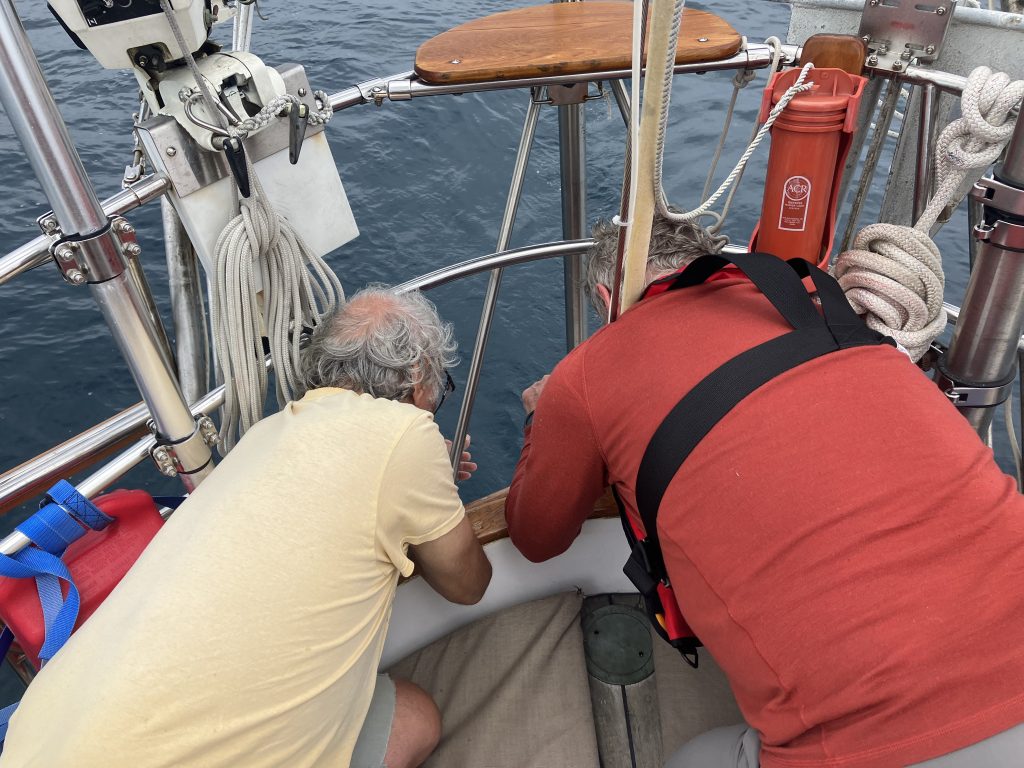
No matter how well prepared you think you are for an off shore passage, things will go wrong. Hopefully those things will be insignificant and few in number, but what’s important is how you react to the problem, and your approach to fixing it or getting by. After all, cruising is ’fixing things in exotic locations’ and I would say the Atlantic Ocean qualifies as ’exotic.’
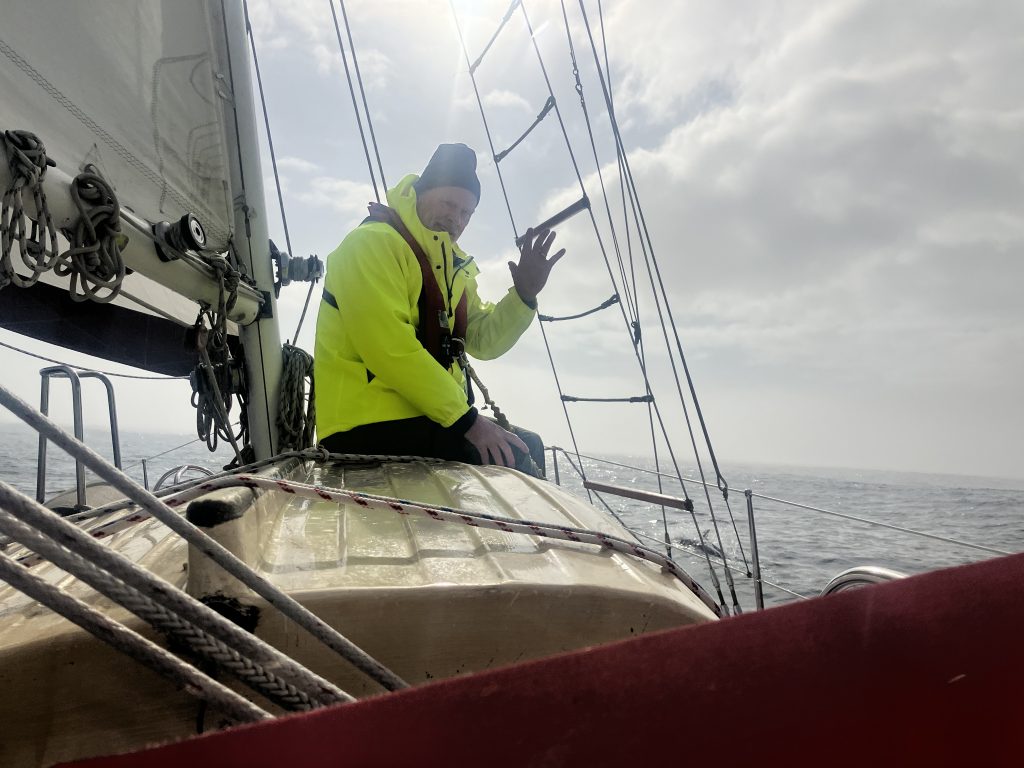
Everything that went wrong was functioning properly when we left, and nearly all were the result of being in caught in heavy weather. Here goes:
: We encountered big winds and big seas, but nothing uncommon for the Atlantic. We did get our cockpit ’pooped’ a couple of times, filling with water before draining. This led to the failure of a sealed electrical unit that controlled our ability to start and stop the engine. The engine starting solenoid is unfortunately located in an inaccessible place on the engine, further complicating the ability to jump start the engine. The Iridium Go satellite communication link now proved critical, as it gave us the ability to communicate with help back home. Friend and fellow sailor James (conveniently another Tayana 37 owner and an electrical engineer) assembled what we began calling ‘Team Kalyra’ (other Tayana owners, Yanmar diesel mechanics, etc.) to troubleshoot and solve the problem. Through a multi-day, extremely detailed set of communications, James and team helped us eliminate non issues, and get to point of successfully bypassing the failed unit and starting the engine again. We were also fortunate enough to have solid winds that made for beautiful sailing during this time period, so all was not lost. We were also able to communicate during this time with Azorean OCC port officer Linda Lane Thornton, who reached out to marina managers on the different islands and re-routed us to Terceira where we could sail in to anchor and find access to a diesel mechanic if needed (luckily neither were needed, but what peace of mind to know they were there).
The engine loss did create a secondary problem, and that was general power for the boat. We have a solar panel, but experienced multiple days of no sun. The wind generator was producing barely enough power to keep up with the constant draw of the instruments needed for navigation, the self steering autohelm, the lights and the refrigerator. We did opt to only run the refrigerator for an hour or so a day, and we often turned the auto helm off and hand steered. Even so, at one point the batteries were low enough that the solenoid for the propane wouldn’t engage. Luckily we have a camping stove on board and I was able to make coffee and heat soup in the cockpit.
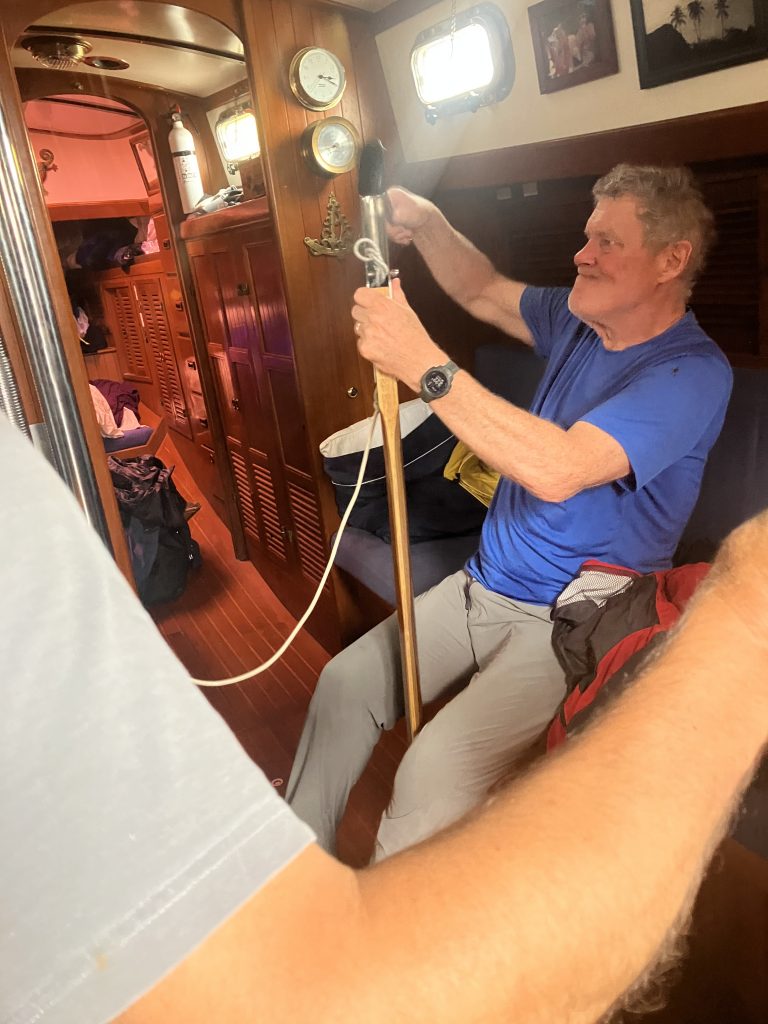
: Wind vanes are finicky, and ours is newly installed (actually we finished it just before we left). The self steering worked for the first two days, and then the oar kept popping off and dragging behind the boat. Trip and Greg fixed it, only to find it steering 30 degrees up into the wind regularly. Trip was able to communicate with the manufacturer, but unfortunately one of the potential fixes required being in flat calm waters, a luxury we didn’t have. Though it requires electricity, we at least had the auto helm to rely on.
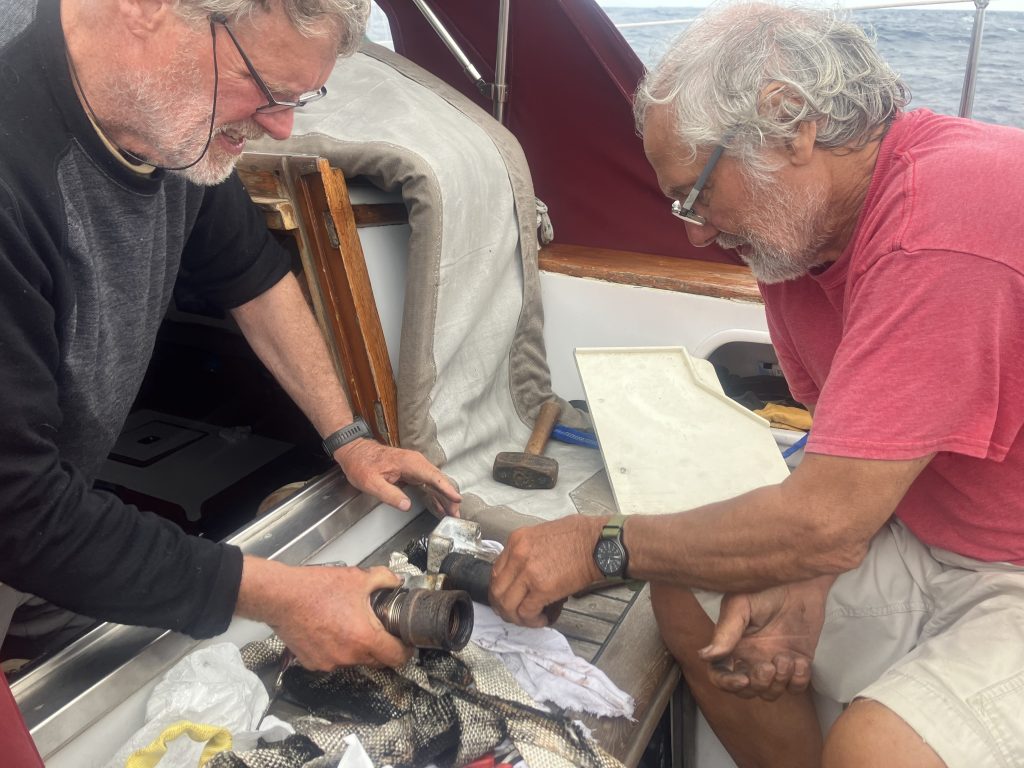
: The marine world is hard on a boat, no matter how well kept. Big seas caused our windlass handle (for dropping and retrieving the anchor) to go overboard, but luckily we had a spare and were able to have a new one made in Terceira. The third reef stop blew out of its rivet, and the webbing attaching the slugs to the top of the mainsail blew out (both problems we faced on the sail to the Carribbean), but both were jury rigged and/or fixed at sea. The riser for the exhaust mixing elbow cracked and had to be disassembled and repaired. Moisture got into the boat which caused the VHF radio to go on the fritz until Trip dried out the connectors and got things back in working order.
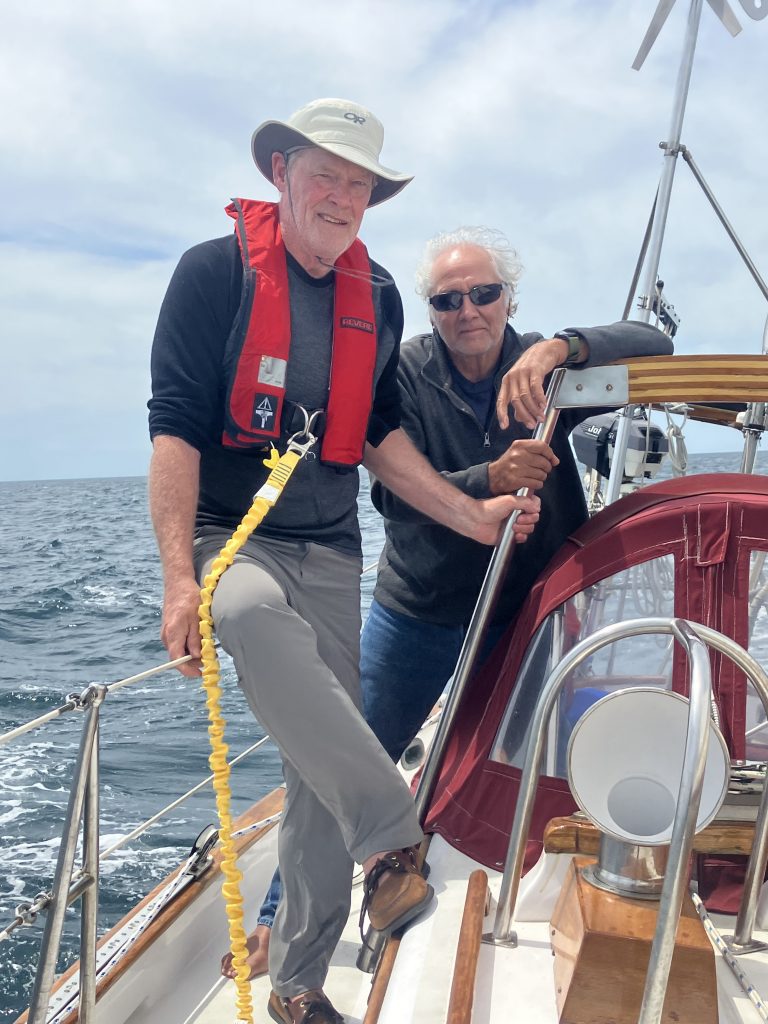
Despite everything that went wrong, I give credit to our crew for remaining calm, working through the problems, and maintaining a healthy sense of humor throughout the sail. If I didn’t express it clearly enough above, a huge debt of gratitude is owed to James and Team Kalyra for keeping our spirits rallied and helping to manage a solution when things went south.

What a voyage!! Your account of it makes it sound like you made it in good spirits despite the many challenges. We loved reading about the help you got from James (whom we know a little, as you know) and Team Kalyra. And your menu planning and cooking sounds amazing! Hope you keep enjoying it all. We’re sitting out a day to avoid 25 knot winds in a tiny harbor almost at the eastern end of Nova Scotia. We should be in Cape Breton in a few days. Cheers, Kate and Bob